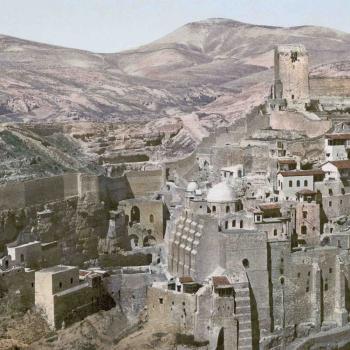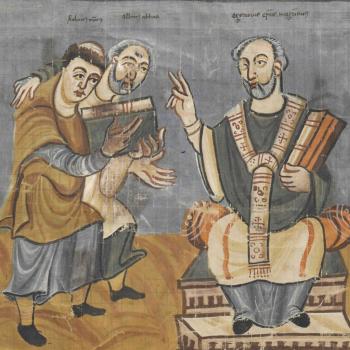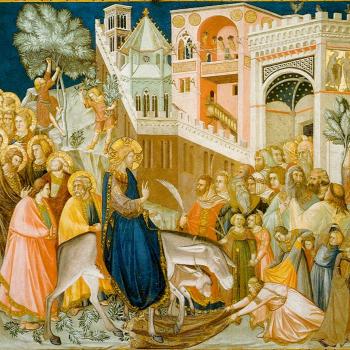This post concerns a wonderful and too-little known resource for Christian history. If you are a specialist in these specific areas, you will be baffled that anyone could make such an obvious point As such specialists are quite rare, I hope that others might find the information of use.
In the first millennium (and more) of Christianity, many of the most important trends and developments in church life happened in the Near East, and indeed regions still further east, in Persia and Central Asia. For centuries, Syriac was one of the primary languages of Christian thought and writing, and languages like Coptic and Armenian were also critical. Even in the thirteenth century, the eastern churches still produced a titanic genius like Gregory Bar Hebraeus. Over time, though, the eastern churches were massively reduced in numbers and importance, so that the rising churches of Europe knew little of these former glories. My book The Lost History of Christianity tried to draw attention to this eastern story.
Writings from the eastern churches, above all in Syriac, survive in large quantities, although they are not easily accessible to most Western scholars. Hence the enormous significance of the Gorgias Press, based in Piscataway, NJ, which tries to make these materials readily available. Gorgias was founded in 2001, by George Kiraz. The Press “is an independent academic publisher of books and journals covering several areas related to religious studies, the world of ancient western Asia, classics, and Middle Eastern studies. Specific areas of our current specializations are studies in Ancient Near East, Arabic and Islam, Archaeology, Bible, Classics, Early Christianity, Judaism, Linguistics, Syriac, and Ugaritic.”
For present purposes, I will concentrate on the Syriac and Christian aspects. Spend a few hours (or days) browsing the press’s website. You will see original titles by such world-class scholars as Sebastian Brock and Andrei Orlov, but also hundreds (thousands?) of reprints of early titles. Many are highly specialized linguistic works, others speak more generally to historical or spiritual interests. Many materials are in English, others in modern European languages, or original texts.
If you have any interest in church history, but do not specialize in these eastern materials or languages, the first thing that will strike you is the amazing range and quantity of texts, authors, and indeed topics that, probably, you have never heard of. Just by alphabetical accident, the first title that strikes my eye is An Anthology of Syriac Writers from Qatar in the Seventh Century, edited by Mario Kozah, Abdulrahim Abu-Husayn, Saif Shaheen Al-Murikhi & Haya Al Thani (2015, Gorgias Eastern Christian Studies 39). That is Qatar, in the Arab Gulf, and here is the blurb:
This anthology includes the writings of a number of Syriac monastic and ascetical writers from the seventh century who were born and educated in Beth Qatraye (Syriac for Qatar or Region of the Qataris). Isaac of Qatar widely known as Isaac of Nineveh, for example, is considered to be the most influential of all Syriac monastic writers and continues to exert a strong influence in monastic circles today. Many of the others like Dadisho of Qatar, Abraham bar Lipah of Qatar, and Ahob of Qatar were important Syriac writers on spirituality and commentators or exegetes within the Church of the East tradition. These writers, who all originated from the Qatar region and were educated there, reveal the presence of an important school of education that rivaled in its sophistication the other more well-known schools such as the School of Nisibis or the School of Edessa.
A show of hands here, please. How many church historians, even those with good familiarity with Latin and Greek Patristics, know much about the Qatar school of Christian thought? How many could say much about “well-known schools such as the School of Nisibis or the School of Edessa”?
Does that sound intriguing? Well, multiply that feeling by a thousand or so, and that is the response you will have to the browsing I am recommending.
Perhaps the greatest lesson a Western church historian can learn from such an investigation is the sheer amount of writing and research that is now available. This is a sobering and humbling experience.
To give some idea of what I am talking about, just imagine an alternate world where Christianity had boomed in Asia but not in Western Europe, and where Latin writings were largely lost to scholarship. Then imagine the experience of a historian suddenly discovering the forgotten texts of these obscure characters called Augustine, Gregory the Great, Benedict, Thomas Aquinas …. Then felt I like some watcher of the skies when a new planet swims into his ken.
For the record, I have zero connection with the press, personal or financial, so take this rave review as wholly objective.
On a related theme, I am delighted to announce a symposium to be held at Baylor University this coming April 20, entitled THE SYRIAC CHRISTIAN CHURCHES: Rediscovering the Church’s Eastern Roots. We have a first-class line up of speakers and topics. Do check out the website, and please tell any friends who might be interested.












